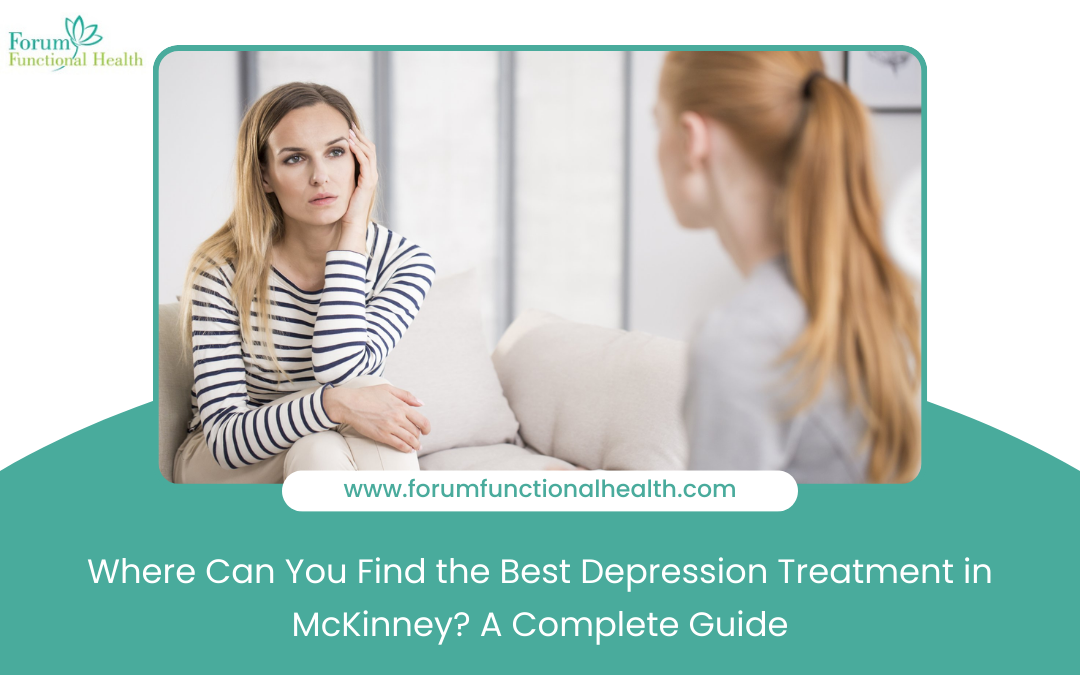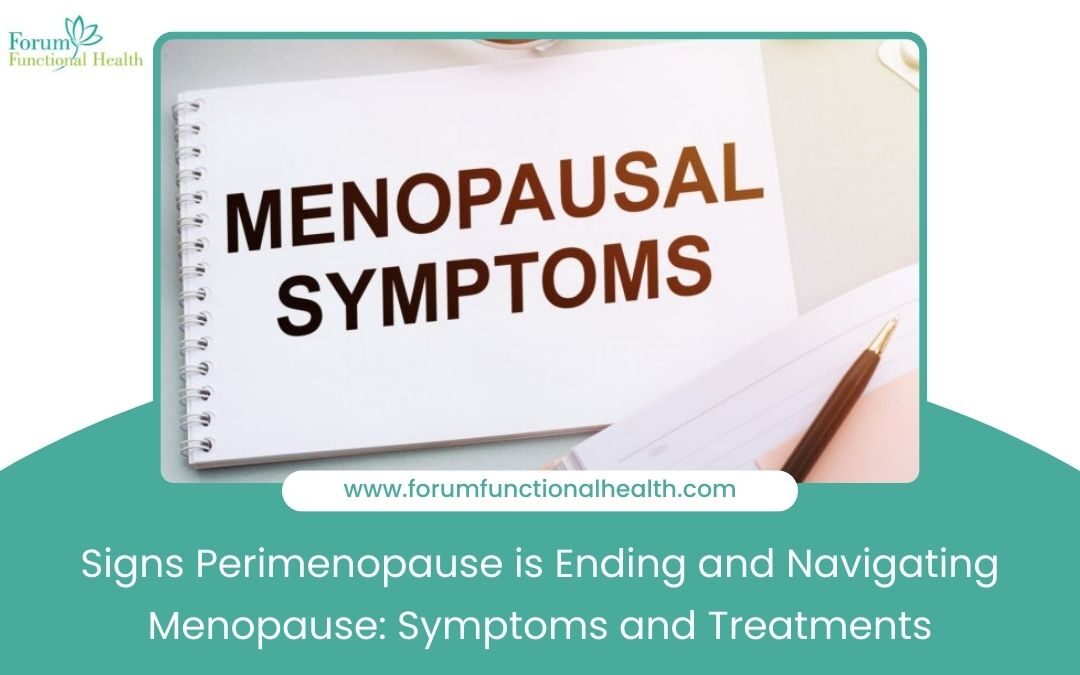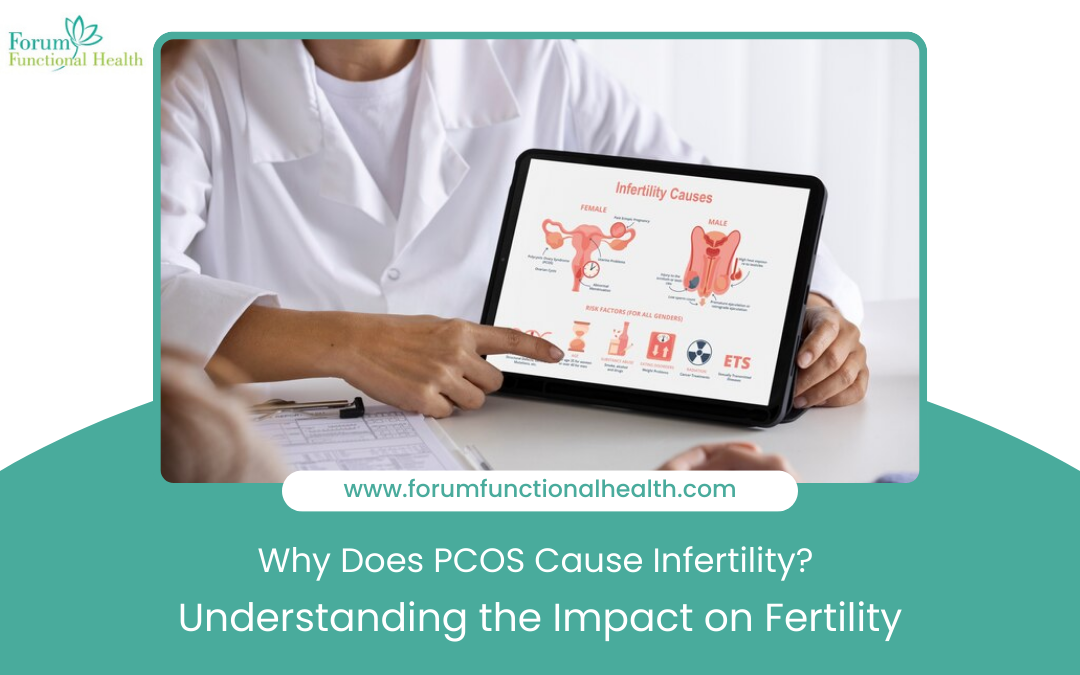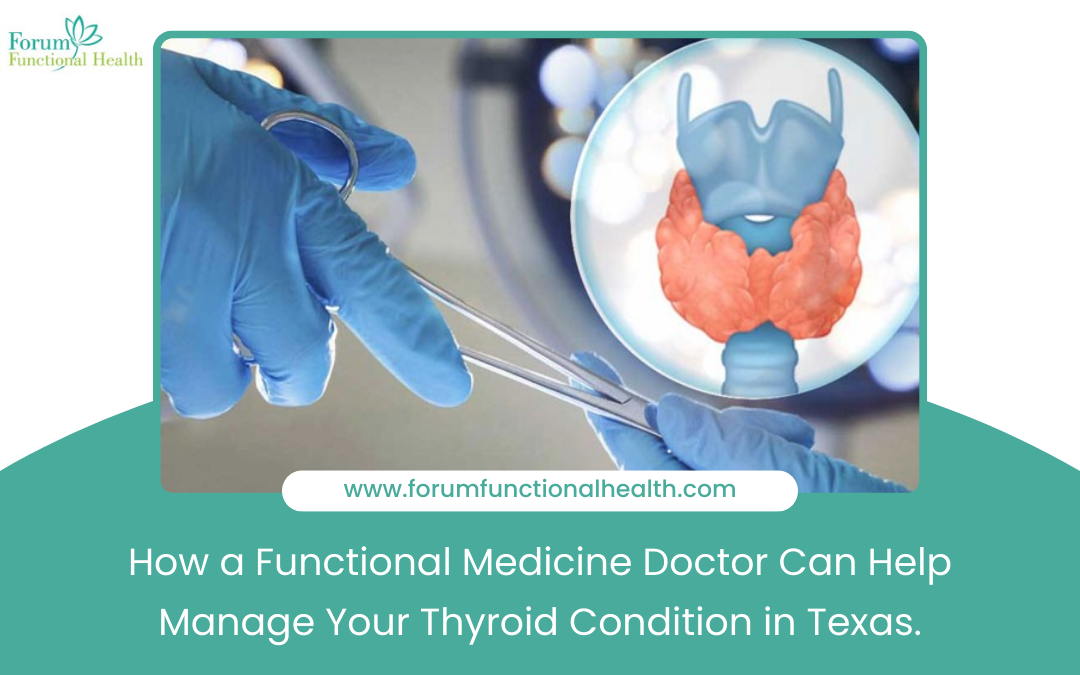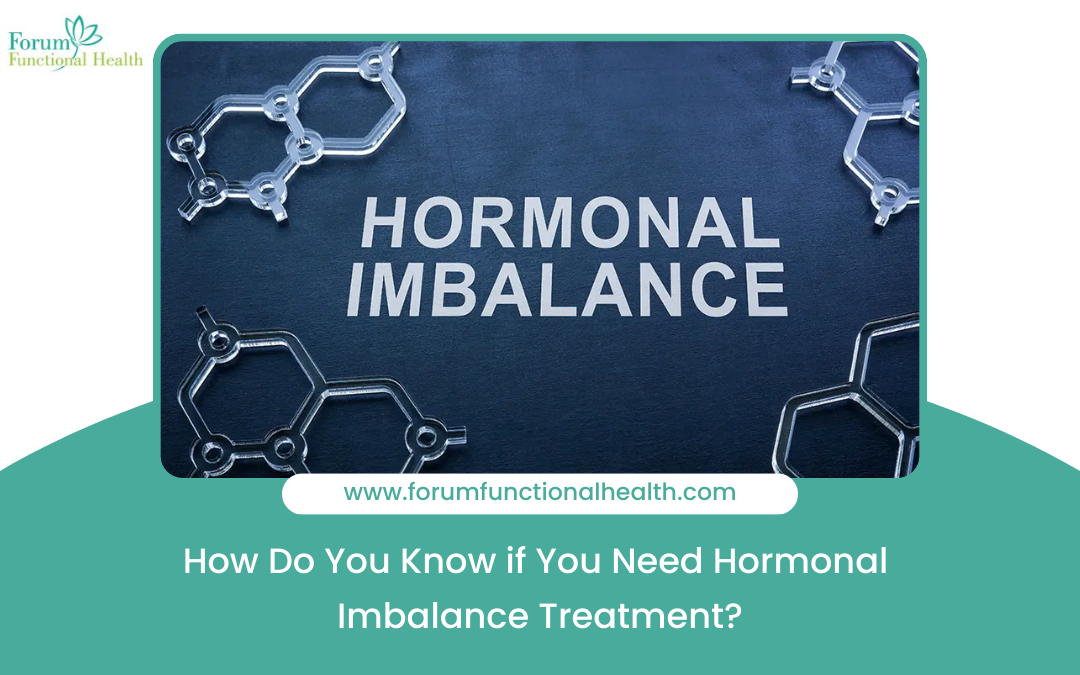
by Forum Functional Health Center | Nov 13, 2024 | Erectile Dysfunction
Erectile dysfunction (ED) is a deeply personal and often challenging condition, affecting millions of men worldwide. It can have a profound impact on self-esteem, intimate relationships, and overall quality of life. But understanding the signs and knowing when to seek help can be the first step toward reclaiming your confidence and vitality.
What Is Erectile Dysfunction (ED)?
ED, or erectile dysfunction, occurs when a man consistently finds it difficult to get or maintain an erection firm enough for sexual activity. While occasional erectile issues are common, persistent symptoms may indicate an underlying health problem that needs attention.
Common ED Symptoms and Warning Signs
Understanding the symptoms of ED is crucial for seeking timely treatment. Here are the main indicators:
- Inability to Achieve an Erection
A common symptom of ED is difficulty achieving an erection, even during sexual stimulation. If this issue occurs more than 50% of the time, it’s a sign to consider seeking medical advice from specialists at the Functional Health Center in Texas.
- Inability to Maintain an Erection
Another key symptom of ED dysfunction is being unable to keep an erection throughout sexual activity. This can often lead to feelings of frustration, anxiety, and diminished self-confidence.
- Reduced Sexual Desire
A significant decrease in sexual interest can accompany ED symptoms. While various factors, such as stress or hormonal imbalances, can contribute, the loss of libido often ties back to the physical and emotional stress of impotence symptoms.
- Emotional Distress and Relationship Strain
ED is not only a physical condition but also a psychological one. It can lead to anxiety, depression, and strained relationships. Many men experience embarrassment or guilt, which can worsen the symptoms if left unaddressed. The support of professionals, like those at the Erectile Dysfunction Treatment in Texas, can be transformative.
When Should You See a Specialist for ED Dysfunction?
Recognizing when to seek medical advice is crucial for managing ED effectively. Here’s when you should consider seeing a specialist:
- Persistent Symptoms
If ED symptoms last longer than a few weeks, it’s essential to consult with a healthcare provider. Persistent signs may indicate underlying conditions like cardiovascular disease, diabetes, or hormonal imbalances. Early intervention is key to preventing further complications.
- Impact on Mental Health
If you notice that ED is affecting your mental well-being, causing anxiety or depression, it’s time to seek help. Emotional health is just as important as physical health. Many men feel immense relief when they open up to specialists about their struggles.
- Associated Health Conditions
If you have health conditions like diabetes, heart disease, or hypertension, it’s especially important to monitor your erectile health. ED can be an early warning sign of these diseases, making a consultation with ED doctors in McKinney, TX, essential for comprehensive care.
Causes of Erectile Dysfunction
ED can stem from a variety of causes, including:
- Physical Factors: Heart disease, high cholesterol, high blood pressure, diabetes, obesity, and smoking can all contribute to ED dysfunction symptoms.
- Psychological Factors: Stress, anxiety, and depression are major contributors to ED. Emotional and psychological health plays a critical role in sexual performance.
- Medications: Certain medications, including some antidepressants and blood pressure drugs, can cause ED as a side effect.
Available Treatments for ED
Thanks to medical advancements, there are various effective treatments for ED. Here are some options:
- Medications
ED medications, such as sildenafil (Viagra), tadalafil (Cialis), and vardenafil (Levitra), are often prescribed to help men achieve and maintain an erection. These medications work by enhancing blood flow to the penis. Always consult a specialist to determine the right choice for you.
- Lifestyle Changes
Healthier lifestyle choices, such as exercise, a balanced diet, and quitting smoking, can have a positive impact on ED. Reducing alcohol intake and managing stress levels can also improve symptoms.
- Therapy and Counseling
Since ED can be linked to psychological factors, therapy can be incredibly helpful. Couples counseling can also address relationship strains and improve intimacy.
- Specialized Treatments
Clinics like the Functional Health Center in Texas offer personalized approaches to ED. Advanced treatments such as hormone therapy, injections, or even surgery may be recommended based on your unique needs.
How to Prepare for Your Specialist Visit
When preparing to see a specialist, be open about your symptoms and any emotional difficulties. Discuss your medical history and any medications you’re taking. Bringing your partner to the appointment may also be helpful, as they can provide support and context to your situation.
Take the First Step Towards Healing
Facing ED is challenging, but you don’t have to face it alone. By understanding your symptoms and seeking professional help, you can find effective solutions and regain confidence. The Erectile Dysfunction Treatment in Texas is here to support you on your journey to wellness and fulfillment.
Takeaway: Your health and well-being matter. Addressing ED symptoms can improve your quality of life, strengthen your relationships, and boost your happiness. Don’t wait to seek help. Consult trusted experts like the Forum Functional Health Center to start your journey today. Contact Forum Functional Health Center.
Export More: Where Can You Find the Best Depression Treatment in McKinney? A Complete Guide

by Forum Functional Health Center | Nov 11, 2024 | Depression, Uncategorized
Depression is more than just feeling sad or low; it’s a serious medical condition that affects millions of people every year. Understanding what depression truly is and how to seek appropriate treatment can make a world of difference in someone’s recovery journey. If you or a loved one are struggling and looking for depression help in McKinney, this guide is here to provide clarity and support.
Understanding Depression: Definition and Symptoms
Depression, also known as clinical depression, is a mood disorder characterized by persistent sadness, a lack of interest in daily activities, and a host of other emotional and physical problems. This condition can disrupt your ability to work, sleep, study, or enjoy life. It’s essential to recognize the signs of depression early on to seek proper help.
Common Depression Symptoms
- Persistent feelings of sadness, hopelessness, or emptiness.
- Loss of interest in activities that once brought joy.
- Changes in appetite and weight, either significant loss or gain.
- Difficulty sleeping or oversleeping.
- Fatigue and lack of energy.
- Trouble concentrating, remembering, or making decisions.
- Physical symptoms like headaches, digestive issues, or chronic pain without a clear physical cause.
Recognizing these symptoms is particularly important for women, as symptoms of depression in women can sometimes differ or be influenced by hormonal changes.
Why Seek Depression Treatment?
Depression is treatable, but it requires comprehensive care. Ignoring depression symptoms can make the condition worse and impact every aspect of your life. Seeking depression treatment ensures that you receive the support and care necessary to regain control and lead a fulfilling life. The right treatment center can help you navigate your journey with therapies tailored to your unique needs.
Finding Depression Help in McKinney
McKinney, Texas, is home to several healthcare providers specializing in depression therapy. One such standout facility is the Forum Functional Health Center, a well-respected place dedicated to providing personalized, compassionate care. Their comprehensive approach to treating depression focuses on the root causes and not just the symptoms.
The Forum Functional Health Center: Your Go-To for Depression Therapy
Located in the heart of Texas, the Functional Health Center in Texas has a reputation for offering effective and holistic treatment plans. They believe in addressing the mind, body, and spirit for a balanced approach to wellness.
Here’s why this center stands out:
- Holistic Approach: Instead of just prescribing medication, they focus on nutrition, lifestyle, and overall well-being.
- Personalized Care: Every patient receives a tailored treatment plan that suits their individual needs.
- Professional Staff: Their team includes licensed therapists and medical professionals experienced in treating clinical depression.
What to Expect from Depression Therapy
At the Functional Health Center in Texas, you’ll find various treatment options, from counseling to natural therapies. Depending on your specific case, your treatment plan may include:
- Cognitive Behavioral Therapy (CBT): To help you reframe negative thoughts and behaviors.
- Lifestyle Modifications: Addressing sleep habits, exercise, and diet to improve mental well-being.
- Nutritional Support: Ensuring your body gets the right nutrients to support mental health.
- Mindfulness and Relaxation Techniques: Teaching you how to manage stress effectively.
This integrative approach helps you heal from the inside out, giving you a better chance at long-term recovery.
Signs You Should Seek Help Immediately
While feeling down occasionally is part of life, prolonged symptoms of depression should not be ignored. If you experience any of the following, it’s crucial to seek help:
- Thoughts of self-harm or suicide.
- Inability to perform daily tasks.
- A noticeable change in behavior or personality.
- Overwhelming feelings of despair.
Remember, there is no shame in asking for help. Mental health is just as important as physical health.
Why Choose Depression Treatment in McKinney?
McKinney offers a supportive and serene environment, making it ideal for healing and recovery. The local mental health professionals, including those at the Depression Treatment in Texas, provide comprehensive care tailored to your needs.
Taking the First Step Toward Healing
Reaching out for help can be intimidating, but it’s one of the bravest steps. If you or someone you know is struggling, don’t wait. Visit a trusted center like the Forum Functional Health in Texas to explore your treatment options and begin your path to recovery. Embrace the support and care you deserve.
Conclusion
Depression is a serious condition, but it doesn’t have to define your life. Seeking professional depression treatment can help you regain control and rediscover joy. Whether you’re dealing with mild or more severe symptoms, know that support is available. The Forum Functional Health Center and other local facilities in McKinney are here to guide you toward a healthier, happier future. Contact Froum Functional Health in Texas.
Export More: Exploring the Types and Forms of Infertility: Effective Treatments for Women in Texas

by Forum Functional Health Center | Nov 8, 2024 | Infertility
Infertility can be an emotionally challenging journey for many women, filled with uncertainty and hope. As you navigate this path, understanding the types and forms of infertility, as well as the available treatments, can be empowering. In Texas, there are compassionate and effective solutions, such as those offered at the Functional Health Center in Texas, that prioritize women’s well-being.
Types of Infertility in Women
Infertility in women manifests in different forms, each with its unique challenges. Here are the primary types:
- Primary Infertility: This refers to the inability to conceive after one year of unprotected intercourse for women under 35, or after six months for women over 35. Women experiencing primary infertility often feel immense emotional strain, as the journey to motherhood may seem daunting and full of obstacles.
- Secondary Infertility: Occurs when a woman has successfully conceived or carried a pregnancy in the past but struggles to conceive again. This can be especially heartbreaking, with feelings of confusion and frustration surfacing.
Polycystic Ovary Syndrome (PCOS) and Infertility
PCOS is one of the leading causes of female infertility. But why does PCOS cause infertility? This hormonal imbalance disrupts ovulation, making it difficult for the ovaries to release eggs regularly. Women with PCOS often face irregular periods, which complicates the timing of conception. Treatment options, such as tailored lifestyle changes and medications, can offer hope and support in this challenging battle.
Effective Treatments for Female Infertility in Texas
Women dealing with infertility in Texas have access to a wide range of advanced and personalized treatment options. The Forum Functional Health Center provides comprehensive care designed to address each woman’s unique needs and struggles.
- Infertility Testing for Women: The first step in treating infertility is accurate diagnosis. Infertility testing for women involves hormonal assessments, ultrasound imaging, and ovulation tests to determine the root cause. Once identified, specialists can create a targeted treatment plan.
- Fertility Medicine for Females: Medication is a common and effective method for treating infertility. Options like Clomiphene Citrate, Letrozole, and Gonadotropins can stimulate ovulation. These medicines, often prescribed after careful evaluation, have helped countless women in Texas embark on their journey to motherhood.
Assisted Reproductive Technologies (ART)
When fertility medicine isn’t enough, assisted reproductive technologies can provide alternative paths to pregnancy. ART options include:
- Intrauterine Insemination (IUI): This procedure involves placing sperm directly into the uterus during ovulation, increasing the chances of fertilization. It is less invasive and can be a suitable option for women with mild infertility challenges.
- In Vitro Fertilization (IVF): Often seen as the most effective ART, IVF involves fertilizing an egg outside the body and then implanting it into the uterus. While this procedure is more intensive, it offers hope to women who have struggled with infertility for years.
Hormonal Treatments and PCOS Management
Hormonal imbalances are a significant cause of female infertility. PCOS management, in particular, may include lifestyle interventions and medications like Metformin to regulate insulin levels. By restoring hormonal balance, many women have achieved successful pregnancies. For more information about Treatment for Female Infertility in Texas, visit here.
Holistic and Functional Approaches
At the Functional Health Center in Texas, a holistic approach to infertility treatment is emphasized. This means addressing lifestyle factors such as diet, exercise, and stress management to enhance fertility. Emotional support is also vital, as the journey through infertility can be taxing. Women are often encouraged to join support groups and seek counseling to manage their mental well-being throughout the process.
Alternative Therapies for Infertility
- Acupuncture: Known to improve blood flow to the reproductive organs, acupuncture has been used to complement traditional infertility treatments.
- Herbal Remedies: Some women find success using herbal supplements to regulate their cycles and balance hormones. However, consulting with a healthcare provider before beginning any herbal regimen is essential.
Emotional Impact of Infertility
Infertility can bring about waves of intense emotions, from sadness and disappointment to hope and determination. Women experiencing infertility often describe feelings of isolation. However, recognizing that you are not alone can be a powerful motivator. Many women find comfort in knowing that effective treatments are available, and with proper guidance, the dream of motherhood is still within reach.
Seeking Support in Texas
If you’re struggling with infertility, remember that you deserve compassionate and effective care. Forum Functional Health Center experts offer personalized treatment plans tailored to each woman’s unique needs. Don’t hesitate to explore options like infertility testing for women or fertility medicine for females. The path to healing and hope is possible, and your dreams of starting or expanding your family are valid.
Conclusion
Exploring the various types and treatments of infertility can be daunting, but knowledge is the first step toward empowerment. In Texas, there are numerous resources and advanced treatments to support women in their fertility journey. Embrace hope, seek guidance, and remember that you are not alone. For further information on effective treatment plans, Contact Forum Functional Health in Texas.
Export More: How to Combat Fatigue on Ozempic: Strategies for a Healthier Lifestyle

by Forum Functional Health Center | Nov 6, 2024 | Fatigue
Introduction
Ozempic has proven to be a helpful medication for those managing type 2 diabetes or working towards weight loss goals, yet some users experience fatigue as a side effect. If you’re facing fatigue from Ozempic in Texas, you may feel drained, impacting your quality of life and making it challenging to maintain daily activities. Luckily, there are actionable strategies to help combat this fatigue, boost your energy, and support your overall health. Let’s explore ways to manage Ozempic fatigue, with insights into why it happens and effective lifestyle changes for lasting relief.
Why Does Ozempic Cause Fatigue?
One of the reasons some people experience fatigue from Ozempic is that the body takes time to adjust to the medication. Ozempic fatigue can result from blood sugar changes as the body adapts, and in some cases, users may feel extra tired due to fluctuations in energy levels. Additionally, medications that affect glucose levels can interact with other factors like high cholesterol and perimenopause fatigue in McKinney, which may contribute to ongoing tiredness. Understanding these interactions can help you better manage fatigue and regain control over your energy.
How Long Does Ozempic Fatigue Last?
The duration of Ozempic fatigue varies based on the individual and their unique health profile. Some users report feeling fatigued for only a few days, while others experience it for weeks. If you’re concerned about how long Ozempic fatigue lasts, remember that adopting certain health habits can make a big difference. It’s essential to work closely with healthcare providers, such as those at the Functional Health Center in Texas, who understand the specific needs of patients on Ozempic and can guide you through fatigue management strategies.
Top Strategies to Combat Ozempic Fatigue
Dealing with fatigue requires a balanced approach that addresses diet, exercise, mental well-being, and hydration. Here are some practical steps you can take to reduce fatigue from Ozempic in Texas:
1. Prioritize Hydration
Staying hydrated is critical for energy. Dehydration can intensify fatigue, especially when combined with the effects of Ozempic. Ensure you’re drinking enough water throughout the day to help your body adjust to the medication more smoothly. Adding electrolytes may also support better hydration and improve your energy levels.
2. Focus on Nutrient-Dense Meals
Eating foods rich in fiber, protein, and healthy fats can stabilize your blood sugar, reducing energy spikes and crashes. Avoid refined carbs and sugar, which may make Ozempic fatigue worse. For those managing high cholesterol, a diet focused on whole grains, fruits, and lean proteins can help, as high cholesterol can cause fatigue on its own.
3. Get Regular Exercise
Physical activity boosts energy and mood. Start with gentle activities like walking, yoga, or swimming, especially if you feel too tired for intense exercise. Gradually increase the intensity as your body adapts to the medication. This approach not only alleviates fatigue but can also improve your overall sense of well-being.
4. Manage Stress Effectively
Fatigue can sometimes be exacerbated by mental and emotional stress. Practicing mindfulness or engaging in relaxing activities can reduce stress levels, ultimately helping with fatigue from Ozempic. A simple meditation routine or even a few minutes of deep breathing exercises daily can be very effective in combating fatigue.
5. Get Quality Sleep
Sleep is a natural remedy for many health issues, including fatigue. Ensure you’re getting 7-8 hours of quality sleep each night to help your body recover and maintain energy. If Ozempic-related fatigue keeps you awake, consider consulting a healthcare provider to explore sleep-enhancing techniques or supplements.
Can High Cholesterol Cause Fatigue?
Yes, high cholesterol can contribute to tiredness. When the body works harder to pump blood through arteries affected by cholesterol buildup, this increased workload can lead to fatigue. Additionally, high cholesterol combined with the fatigue side effect of Ozempic can make energy levels feel even lower. Addressing cholesterol through lifestyle adjustments and regular check-ups at facilities like the Froum Functional Health Center in Texas is a proactive step towards combating tiredness.
Exploring Ozempic Fatigue Remedies
Managing fatigue from Ozempic is all about making small but impactful lifestyle adjustments. Here are a few more targeted remedies to consider:
Seek Support for Perimenopause Fatigue in McKinney
Women experiencing perimenopause fatigue in McKinney may face additional challenges while on Ozempic. Hormonal changes can amplify tiredness, so consider speaking with specialists who understand the overlap of diabetes treatment, perimenopause, and fatigue management. These professionals can create a holistic treatment plan that addresses fatigue from multiple angles.
Explore Fatigue Treatment in Texas
If lifestyle changes alone aren’t enough to combat your fatigue, consider a specialized fatigue management approach. The Fatigue Treatment in Texas offers comprehensive support, including nutritional guidance, exercise planning, and stress management strategies. This center can help you navigate fatigue issues with a plan tailored to your unique health needs.
Staying Positive: Embrace a Healthier Lifestyle
Living with Ozempic fatigue can feel discouraging, but remember that your efforts can lead to positive changes. Implementing these strategies may take time, but they will gradually lead to noticeable improvements in your energy levels and overall well-being. Stay connected with supportive healthcare providers and loved ones who can encourage you. Overcoming fatigue requires patience and persistence, but each step you take toward a healthier lifestyle brings you closer to feeling like yourself again.
Conclusion: Take Charge of Your Energy and Well-being
Managing fatigue from Ozempic in Texas is possible with the right mindset and lifestyle adjustments. You can combat fatigue and regain energy by focusing on hydration, a nutrient-rich diet, regular exercise, and stress management. Additionally, contacting the Functional Health Center in Texas or exploring Fatigue Treatment in Texas can provide you with tailored support and guidance. Take charge of your health today, and start feeling more energized, confident, and empowered. Contact Forum Functional Health in Texas.
Explore More: Signs Perimenopause is Ending and Navigating Menopause: Symptoms and Treatments

by Forum Functional Health Center | Nov 4, 2024 | Menopause & Perimenopause
The journey from perimenopause to menopause is a significant transition in a woman’s life, often filled with a mix of emotions, physical changes, and questions. Recognizing when perimenopause is ending can help women prepare for menopause and understand how to best care for their health through these stages. This guide provides insights into the symptoms that signal the end of perimenopause, common menopause symptoms, and effective treatments. If you’re seeking expert advice, Forum Functional Health Center in Texas offers comprehensive support and solutions tailored to every stage of this journey.
Understanding Perimenopause: What Is It?
Perimenopause is the time leading up to menopause, characterized by fluctuating hormone levels and various symptoms. It typically begins in a woman’s 40s, but some may experience it earlier. During perimenopause, hormone levels like estrogen and progesterone start to decrease, leading to physical and emotional changes. This transition phase ends once menopause begins, officially marked by 12 consecutive months without a menstrual period.
Signs Perimenopause Is Ending
As perimenopause progresses, many women notice specific signs that indicate menopause is near. Knowing these can help manage expectations and prepare for the next phase:
- Irregular Menstrual Cycles: As perimenopause ends, periods become highly irregular or may stop altogether. Cycles may be skipped for months before completely stopping.
- Increased Menopause Symptoms: Symptoms such as hot flashes, night sweats, and mood swings often intensify as menopause approaches. These signs may continue but often change in intensity.
- Sleep Disturbances and Fatigue: Sleep issues and fatigue are common, with many women finding it harder to stay asleep. Persistent fatigue can be overwhelming, affecting daily life and emotional well-being.
- Decreased Fertility: While it’s rare, some women have reported pregnancy during late perimenopause. If you’re interested in learning more, check out our I got pregnant during perimenopause forum to read shared experiences and advice from others.
Common Symptoms of Menopause
Once perimenopause ends, menopause symptoms become a daily reality for most women. While experiences vary, some common symptoms include:
- Hot Flashes and Night Sweats: These sudden heat waves are among the most well-known symptoms and can disrupt daily routines.
- Mood Swings and Anxiety: Hormone shifts can affect mood, leading to anxiety, irritability, and even depression for some women.
- Weight Gain and Slowed Metabolism: Many women notice weight gain or find it harder to lose weight, particularly around the abdomen.
- Memory Problems and Focus Issues: “Menopause brain” is a common term for memory lapses and issues with concentration.
To learn more about managing these symptoms, visit our detailed guide on Premenopause, Perimenopause, and Menopause Issues in Texas.
How to Manage Perimenopause and Menopause Symptoms
Thankfully, there are effective treatments to help manage these symptoms and improve quality of life. At Forum Functional Health Center, women receive personalized care options that suit their needs.
1. Hormone Replacement Therapy (HRT)
HRT is a common treatment for women experiencing severe menopause symptoms. It involves supplementing the body with estrogen, progesterone, or both to help balance hormones and reduce symptoms like hot flashes and mood swings. HRT may be beneficial for those with moderate to severe symptoms, but it’s essential to consult a healthcare provider to discuss potential risks and benefits.
2. Lifestyle Modifications
Simple changes in daily routines can significantly impact symptom management. Increasing physical activity, maintaining a balanced diet, reducing caffeine intake, and prioritizing sleep can help alleviate symptoms and enhance well-being.
3. Natural Supplements
Many women find relief with natural supplements like black cohosh, evening primrose oil, or vitamin E. These may reduce hot flashes and improve mood. However, consult your healthcare provider before adding supplements to ensure they won’t interfere with any existing treatments or medications.
4. Therapies for Mental Health
Mental health care is crucial during menopause, as hormonal changes can affect emotions. Counseling, therapy, and stress-management techniques such as meditation and yoga can help manage mood swings, anxiety, and stress during this transition.
For those seeking perimenopause treatment in Texas, Forum Functional Health Center in McKinney, TX offers various options, from hormone therapy to holistic wellness programs tailored to each patient’s unique needs.
What Are the 34 Symptoms of Perimenopause?
Perimenopause is known for a wide range of symptoms that can vary in intensity. Here are some of the most commonly reported:
- Irregular periods
- Hot flashes
- Night sweats
- Sleep problems
- Mood changes
- Fatigue
- Vaginal dryness
- Decreased libido
- Joint pain
- Weight gain
- Hair thinning
- Memory problems
- Anxiety
- Depression
- Skin changes
- Frequent headaches
- Breast tenderness
- Heart palpitations
- Muscle tension
- Bloating
- Increased PMS symptoms
- Urinary incontinence
- Dry eyes
- Body odor changes
- Increased allergies
- Dizziness
- Osteoporosis risk
- Gum issues
- Brittle nails
- Tinnitus (ringing in the ears)
- Cold or tingling hands and feet
- Sugar cravings
- Digestive issues
- Mood instability
Perimenopause Fatigue: A Common Challenge
One of the most challenging symptoms is perimenopause fatigue. It can make everyday tasks feel daunting and leave women feeling drained despite adequate rest. This fatigue is often linked to fluctuating hormone levels, sleep disturbances, and emotional stress. Proper rest, nutrition, and stress management can significantly help alleviate this symptom. Seeking professional support, such as that offered at a Functional Health Center in Texas, can be beneficial for managing fatigue effectively.
Why Choose Forum Functional Health Center for Perimenopause and Menopause Care?
At Forum Functional Health Center in Texas, we believe in personalized, compassionate care tailored to each woman’s unique experience with perimenopause and menopause. Our team offers a variety of treatments and therapies designed to ease symptoms and enhance overall health. From hormonal therapies to holistic wellness programs, we are here to support you every step of the way.
If you are experiencing any signs that perimenopause is ending or seeking guidance on managing menopause symptoms, don’t hesitate to reach out to us for a consultation.
Conclusion
Navigating the journey from perimenopause to menopause is a deeply personal experience that requires understanding, patience, and care. By recognizing the signs that perimenopause is ending and exploring treatments for menopause, you can take control of your health and well-being during this time. To learn more about tailored treatment options and holistic support, visit the experts at Forum Functional Health Center. Contact Forum Functional Health in Texas.
Read More: Why Does PCOS Cause Infertility? Understanding the Impact on Fertility

by Forum Functional Health Center | Nov 1, 2024 | Polycystic ovary syndrome (PCOS)
Polycystic ovary syndrome (PCOS) is a complex hormonal disorder that affects many women worldwide. One of the most challenging aspects of PCOS is its impact on fertility. If you’ve been diagnosed with PCOS or are struggling with infertility, understanding how this condition affects your ability to conceive is essential. In this article, we’ll explore why PCOS causes infertility and discuss the various treatment options available in Texas.
Understanding PCOS and Its Symptoms
PCOS is characterized by hormonal imbalances that can lead to a range of symptoms, including irregular menstrual cycles, weight gain, acne, and excessive hair growth. Many women with PCOS also experience issues with ovulation, which can make it difficult to conceive.
When asked, Does PCOS cause infertility? the answer is often yes. The hormonal imbalances associated with PCOS can lead to anovulation (the absence of ovulation), which is a primary reason for infertility in women with this condition.
The Hormonal Imbalance of PCOS
The hormonal irregularities in PCOS primarily involve elevated levels of androgens (male hormones), such as testosterone, and imbalances in insulin levels. Here’s how these factors contribute to infertility:
1. Anovulation
One of the most significant impacts of PCOS on fertility is the lack of ovulation. When the body produces excess androgens, it can disrupt the normal ovulation cycle, leading to irregular periods or missed ovulation altogether. Women with anovulation may struggle to conceive, as ovulation is a crucial part of the fertility process.
2. Insulin Resistance
Many women with PCOS also experience insulin resistance, which can lead to higher insulin levels. This, in turn, can increase androgen production, exacerbating the hormonal imbalance and further affecting ovulation.
3. Uterine Lining Issues
PCOS can lead to an abnormal buildup of the uterine lining, known as endometrial hyperplasia. This condition can create an inhospitable environment for implantation, making it more challenging for an embryo to take hold if conception does occur.
PCOS and Perimenopause: A Compounding Factor
As women age, they naturally transition into perimenopause, which can further complicate PCOS. The hormonal fluctuations during perimenopause can intensify the symptoms of PCOS, including irregular cycles and increased infertility risks. Understanding the link between PCOS and perimenopause is essential for those navigating these stages of life.
The Emotional Toll of PCOS-Related Infertility
Dealing with infertility can be emotionally draining. Women with PCOS often feel a mix of frustration, sadness, and anxiety as they grapple with their fertility challenges. Joining a PCOS forum can provide support and understanding from others who are experiencing similar struggles. Sharing experiences and advice can help you feel less isolated and more empowered.
Seeking Treatment for PCOS
If you’re struggling with infertility due to PCOS, it’s crucial to seek effective treatment. Fortunately, there are various options available to help manage your symptoms and improve your chances of conception.
1. Lifestyle Changes
Making healthy lifestyle choices can have a significant impact on managing PCOS. Consider the following:
- Balanced Diet: Focus on whole foods, such as fruits, vegetables, lean proteins, and whole grains. A low-glycemic diet can help manage insulin levels.
- Regular Exercise: Physical activity can help regulate your hormones and improve insulin sensitivity.
2. Medical Treatments
In Texas, the Forum Functional Health Center offers specialized PCOS treatment in Texas, tailored to individual needs. Common treatments include:
- Medications: Birth control pills can help regulate menstrual cycles and reduce androgen levels. Additionally, medications like metformin can improve insulin sensitivity.
- Ovulation Induction: Fertility medications, such as clomiphene citrate, can help stimulate ovulation in women who do not ovulate regularly.
For more information on polycystic ovary syndrome (PCOS) treatment in McKinney, TX, you can visit our website here.
3. Supportive Therapies
Consider exploring supportive therapies like acupuncture or mindfulness practices to manage stress. Reducing stress can help improve hormonal balance, making it easier to conceive.
Conclusion: Taking Control of Your Fertility Journey
Understanding why PCOS causes infertility is the first step toward taking control of your reproductive health. With the right knowledge, support, and treatment, it is possible to manage PCOS and improve your chances of conception.
If you’re in Texas and seeking personalized care, reach out to the Functional Health Center in Texas. Our team is dedicated to helping you navigate your PCOS journey with compassion and expertise. Remember, you are not alone on this journey, and with the right support, hope is always within reach. Contact Forum Functional Health in Texas.

by Forum Functional Health Center | Oct 30, 2024 | Thyroid disease
Thyroid conditions can significantly impact your life, affecting everything from energy levels to mood. In Texas, individuals grappling with thyroid issues are turning to functional medicine as an innovative approach to health. By addressing the root causes of thyroid dysfunction, a functional medicine doctor can provide tailored treatment plans that resonate with your unique health needs. This post explores how a functional medicine doctor can help you manage your thyroid condition in Texas.
Understanding Thyroid Conditions
Thyroid disorders, such as hypothyroidism and hyperthyroidism, can manifest in various symptoms, including fatigue, weight changes, and emotional disturbances. A key question many ask is, Can hypothyroidism cause anxiety? The answer is yes. Thyroid imbalances can disrupt hormonal levels, leading to increased anxiety and depression.
What are the first signs of thyroid eye disease? Symptoms often include swelling around the eyes, dryness, and vision changes. Recognizing these early signs is crucial for timely intervention and effective treatment.
The Role of a Functional Medicine Doctor
A functional medicine doctor in McKinney, TX, takes a holistic approach to healthcare. Unlike conventional medicine, which often focuses on symptom management, functional medicine emphasizes understanding and addressing the underlying causes of your thyroid issues. This could involve:
- Comprehensive Testing: Functional medicine practitioners conduct thorough evaluations, including blood tests to assess hormone levels and autoimmune markers. They may also evaluate nutrient deficiencies, which are often overlooked in traditional practices.
- Personalized Treatment Plans: Based on the findings, your doctor will create a tailored treatment plan. This plan may include lifestyle changes, dietary recommendations, and targeted supplementation to restore hormonal balance.
- Support for Mental Health: Addressing the emotional aspects of thyroid conditions is vital. With many patients asking, Can thyroid cause anxiety? functional medicine recognizes the importance of mental health and may include therapies or referrals to mental health professionals as part of your treatment.
Thyroid Disease Treatment in Texas
In Texas, the Forum Functional Health Center offers specialized care for thyroid conditions. Our team of experienced professionals understands the complexities of thyroid disease and is dedicated to providing comprehensive treatment options. From hypothyroidism and high cholesterol to thyroid eye disease, our goal is to help you reclaim your health.
Managing Hypothyroidism and Its Effects
Hypothyroidism can lead to various complications, including weight gain and high cholesterol. Patients often wonder about the connection between hypothyroidism and high cholesterol. When thyroid hormone levels are low, the body’s metabolism slows, which can result in elevated cholesterol levels. A functional medicine approach addresses both thyroid function and lipid levels, promoting overall health.
Lifestyle Changes for Better Thyroid Health
Managing your thyroid condition effectively often requires lifestyle modifications. Here are some key strategies to consider:
1. Nutrition Matters
A balanced diet rich in nutrients is essential for thyroid health. Foods high in iodine, selenium, and zinc support thyroid function. Consider incorporating:
- Iodine-rich foods: Seaweed, fish, and dairy products.
- Selenium Sources: Brazil nuts, sunflower seeds, and mushrooms.
- Zinc-Rich Options: Meat, shellfish, and legumes.
2. Stress Management
Chronic stress can exacerbate thyroid issues, leading to symptoms like anxiety. Mindfulness practices, yoga, and regular exercise can help manage stress levels, contributing to better thyroid health.
3. Regular Check-ups
Frequent visits to a functional medicine doctor can ensure your treatment plan is working effectively. They can adjust medications, monitor hormone levels, and address any new symptoms that arise.
Emotional Well-being in Thyroid Management
Living with a thyroid condition can be emotionally challenging. Many patients experience mood swings, anxiety, and even depression. Seeking support through counseling or joining support groups can be beneficial. Remember, you’re not alone in this journey, and emotional well-being is an integral part of managing your thyroid health.
Conclusion:
Managing a thyroid condition can feel overwhelming, but you don’t have to face it alone. By partnering with a functional medicine doctor in Texas, you can develop a personalized treatment plan that addresses your unique needs and improves your quality of life.
If you’re ready to take control of your health, consider reaching out to the Forum Functional Health Center in Texas. Our dedicated team is here to help you navigate your thyroid journey with compassion and expertise.
For more information on thyroid disease treatment in McKinney, TX, visit us here to explore your options and take the first step towards a healthier, happier you.
Read More: Maintaining Weight Loss After Semaglutide: Proven Strategies for Long-Term Success

by Forum Functional Health Center | Oct 28, 2024 | Weight Management
Introduction: Embracing Your Weight Loss Journey with Semaglutide
Losing weight is a journey filled with hope, commitment, and challenges. For many, medications like semaglutide have proven effective, leading to remarkable weight loss results. However, maintaining this success requires a solid strategy and lifestyle changes that go beyond medication. So, if you’re wondering how to lose weight fast naturally, and permanently, this guide is designed to offer practical and science-backed strategies that promote lasting health and well-being.
At Forum Functional Health Center, we believe in supporting each step of your weight management journey. Our approach not only addresses why is weight management important but also emphasizes the best practices for maintaining your weight loss long-term.
The Importance of Weight Management
Weight management is more than just hitting a goal number on the scale. It’s about feeling your best, managing energy levels, and reducing risks of conditions like diabetes, heart disease, and other health complications. So, what is weight management and why is it important? Effective weight management means achieving a sustainable, healthy lifestyle that allows you to keep the weight off, empowering you to live fully and confidently.
At the Functional Health Center in Texas, we understand the complex factors involved in stress and weight management and the essential role they play in achieving lasting health.
1. Prioritize a Balanced, Nutrient-Rich Diet
To successfully maintain your weight loss after semaglutide, a balanced diet is critical. Consider the following tips for sustainable eating:
- Focus on Whole Foods: Incorporate fruits, vegetables, lean proteins, and whole grains into every meal. These foods are rich in nutrients that help manage hunger, support energy, and stabilize blood sugar.
- Monitor Portion Sizes: Instead of completely restricting certain foods, practice mindful eating. Enjoy smaller portions of your favorite treats without compromising on enjoyment.
Eating well fuels your body, and learning why is weight management important can keep you motivated to make healthier food choices.
2. Exercise Consistently for Physical and Mental Health
Physical activity is not just about burning calories; it’s also about maintaining the muscle mass that supports a higher metabolic rate. Regular exercise has additional benefits, such as boosting mood and managing stress—key factors for weight stability.
- Strength Training: Including resistance exercises helps maintain lean muscle, which burns more calories at rest.
- Cardio Activities: Whether it’s walking, swimming, or dancing, aim for activities that you enjoy, making it easier to stick with over the long term.
Maintaining a routine of physical activity can alleviate stress, a known contributor to weight fluctuations. By addressing stress and weight management, you’re better equipped to handle the ups and downs of life without jeopardizing your weight goals.
3. Seek Support and Accountability
Staying on track with your weight management goals can be challenging, which is why finding support is essential. This can take many forms, from joining a local or online support group to working with a professional. A weight management clinic can provide the structure, encouragement, and guidance you need to stay committed.
Engaging with a professional team ensures that your approach remains balanced and tailored to your needs. With the right support system, you won’t have to navigate your journey alone.
4. Track Your Progress and Celebrate Milestones
Regular tracking is a powerful tool for staying motivated. Whether it’s keeping a food journal, tracking your workouts, or celebrating small wins, each action helps reinforce positive habits.
- Set Mini Goals: Break your long-term goals into achievable steps. This not only keeps you focused but also provides frequent opportunities for celebration.
- Embrace Non-Scale Victories: Improved energy, better sleep, and boosted self-confidence are important markers of progress, reminding you of the deeper reasons why weight management is important.
Recording your journey and taking pride in these achievements strengthens your commitment, enhancing your success at losing weight fast naturally, and permanently.
5. Be Mindful of Your Relationship with Food
Emotional eating can be one of the biggest challenges when trying to maintain weight loss. Developing a healthy relationship with food is essential for sustainable weight management.
- Identify Triggers: Many people turn to food in response to stress, boredom, or sadness. Recognizing these patterns can help you find alternative coping strategies.
- Practice Mindful Eating: Slow down and savor each bite. Paying attention to your body’s hunger and fullness cues can prevent overeating and help you enjoy your meals more fully.
Finding alternative ways to handle emotions reduces reliance on food for comfort, aligning with our mission at Functional Health Center in Texas to foster balanced, lifelong habits.
6. Prioritize Sleep and Manage Stress Levels
Sleep and stress play significant roles in weight management. Poor sleep disrupts hormone balance, increasing cravings for unhealthy foods. Additionally, chronic stress affects your body’s ability to metabolize food efficiently.
- Establish a Sleep Routine: Aim for 7–9 hours of sleep per night. Quality rest helps regulate hunger hormones, supporting better eating habits.
- Engage in Stress-Reducing Activities: Meditation, yoga, or spending time in nature can have powerful effects on stress management.
Addressing both sleep and stress ensures that your body and mind remain in harmony, making it easier to maintain weight loss long-term.
7. Consult a Functional Health Center for Personalized Guidance
Every individual’s journey to weight loss is unique. Consulting with experts, like those at Forum Functional Health Center, can help you stay on track and overcome challenges. Whether you’re questioning how much weight you can lose or exploring new strategies, personalized guidance can make all the difference.
By working with a team that understands your health goals and lifestyle, you’ll receive tailored advice and ongoing support, helping to solidify your commitment to long-term health.
Conclusion: The Road to Sustainable Health and Happiness
Maintaining weight loss after semaglutide treatment is possible when you’re equipped with the right strategies and support system. You can achieve lasting success by prioritizing balanced nutrition, regular exercise, mindful habits, and professional guidance from a weight loss management treatment in Texas. Remember, this journey is not just about weight; it’s about feeling confident, healthy, and empowered.
So, embrace this new chapter enthusiastically and let every step forward reaffirm why weight management is important. Every milestone you achieve on this journey brings you closer to a healthier, happier you. Contact Forum Functional Health in Texas.
Read More Details: How Do You Know if You Need Hormonal Imbalance Treatment?

by Forum Functional Health Center | Oct 25, 2024 | Hormonal Imbalance
Hormonal imbalances can significantly impact a woman’s quality of life, affecting everything from mood and energy levels to reproductive health. But how do you know when it’s time to seek hormonal imbalance treatment? In this article, we’ll explore the signs of hormonal imbalance, the importance of getting tested, and the available treatment options to restore balance and well-being.
Understanding Hormonal Imbalance
Hormonal imbalances occur when there is too much or too little of certain hormones in the body. Common hormones affected include estrogen, progesterone, testosterone, and thyroid hormones. These imbalances can lead to a variety of symptoms, especially hormonal imbalance in women, such as:
- Irregular periods or missed periods
- Severe PMS or PMDD
- Unexplained weight gain or loss
- Mood swings, anxiety, or depression
- Fatigue and low energy
- Hot flashes or night sweats
- Difficulty sleeping
- Reduced libido or sexual dysfunction
If you’re experiencing any of these symptoms, it may indicate a need for hormonal imbalance treatment. Recognizing these signs early can help you take proactive steps toward regaining your health.
The Importance of Hormonal Imbalance Testing
One of the first steps in determining whether you need treatment is to undergo a hormonal imbalance test. This test can provide valuable insights into your hormone levels and help identify specific imbalances. Hormone testing typically includes blood, saliva, or urine tests to measure the levels of key hormones in your body.
Testing is crucial because it allows healthcare professionals to develop a personalized treatment plan tailored to your unique hormonal needs. If you suspect you have a hormonal imbalance, consider scheduling a consultation at a Functional Health Center in Texas like the Forum Functional Health Center.
Signs That You May Need Treatment
If you’re still unsure whether you require hormonal imbalance treatment, consider these additional factors:
1. Family History
If hormonal issues run in your family, you might be more prone to experiencing similar challenges. Family history can indicate a genetic predisposition to conditions like polycystic ovary syndrome (PCOS) or thyroid disorders.
2. Lifestyle Factors
Poor diet, lack of exercise, and high stress levels can contribute to hormonal imbalances. If your lifestyle is not supportive of your overall health, it may be time to reassess your habits and consider seeking help.
3. Age
As women age, hormonal fluctuations are natural, especially during perimenopause and menopause. However, if these changes lead to disruptive symptoms, it may indicate a need for treatment.
4. Response to Previous Treatments
If you have already sought treatment for hormonal issues and are still experiencing symptoms, it may be time to explore different options or further testing.
Treatment Options for Hormonal Imbalance
If testing confirms a hormonal imbalance, various treatment options can help restore balance and improve your quality of life. Here are some effective approaches:
1. Lifestyle Changes
Making lifestyle adjustments is often the first step toward correcting hormonal imbalances. This includes:
- Eating a balanced diet: Focus on whole foods, fruits, vegetables, lean proteins, and healthy fats.
- Regular exercise: Aim for at least 150 minutes of moderate exercise each week to help balance hormones and manage weight.
- Stress management: Incorporate relaxation techniques such as yoga, meditation, or deep breathing exercises.
2. Supplements for Hormonal Imbalance
Certain supplements for hormonal imbalance can support hormone regulation. Some popular options include:
- Maca Root: Known for its potential to balance estrogen and testosterone levels.
- Evening Primrose Oil: Often used to alleviate PMS symptoms.
- Vitamin D: Plays a crucial role in hormone regulation and overall health.
When considering vitamins for hormonal imbalance, consult a healthcare professional to determine the best options for your needs.
3. Hormone Replacement Therapy (HRT)
For some women, hormone replacement therapy may be an effective solution. HRT involves supplementing the body with hormones to relieve symptoms associated with imbalances. Discussing this option with your healthcare provider can help determine if it’s right for you.
4. Natural Remedies
Many women find relief from hormonal symptoms through natural remedies such as herbal supplements or acupuncture. Discussing these options with a holistic practitioner can offer additional insights into managing your symptoms.
5. Comprehensive Treatment Programs
At a Forum Functional Health Center in Texas, such as the Forum Functional Health Center, you can access comprehensive treatment programs that integrate multiple approaches to restore hormonal balance. This may include personalized nutrition plans, lifestyle coaching, and regular monitoring of your hormone levels.
Conclusion: Taking Control of Your Health
If you suspect you are experiencing hormonal imbalances, it’s essential to take action. From understanding the symptoms to undergoing testing and exploring treatment options, you have the power to reclaim your health. Don’t hesitate to contact a healthcare professional at a Functional Health Center in Texas to discuss your symptoms and get the help you need.
Remember, your well-being is worth investing in. You can find the balance necessary for a fulfilling life through lifestyle changes, supplements, or professional treatment. Contact Forum Functional Health in Texas.
Read More Details: Comprehensive Guide to Erectile Dysfunction Treatments: From Temporary to Permanent Solutions

by Forum Functional Health Center | Oct 23, 2024 | Erectile Dysfunction
Erectile dysfunction (ED) can be an emotionally challenging condition, affecting not only the person suffering but also their partner. For many men, it’s not just about the physical impact; it’s also about how erectile dysfunction affects a woman emotionally and within relationships. If you or your partner are struggling with ED, this guide offers a thorough understanding of the available treatments, ranging from temporary fixes to permanent solutions. In Texas, advanced options such as those at the Functional Health Center provide hope for overcoming this condition.
Understanding Erectile Dysfunction: What Causes It?
Before diving into treatments, it’s important to understand what causes erectile dysfunction. ED can be triggered by physical conditions such as heart disease, diabetes, and hormonal imbalances, as well as psychological factors like stress and anxiety. These root causes determine the appropriate course of treatment, whether you’re asking, “Is erectile dysfunction permanent?” or if it can be managed with lifestyle changes.
Can Erectile Dysfunction Be Cured?
A common question men ask is, “Can erectile dysfunction be cured?” The answer depends on the underlying cause. For some men, ED is a temporary issue caused by stress or medication side effects, while for others, it might be a more permanent condition due to chronic health issues. However, many advances in modern medicine now offer effective solutions, and there are even cases where a permanent cure for erectile dysfunction has been achieved through a combination of medical treatments and lifestyle adjustments.
Temporary Solutions for Erectile Dysfunction
For those seeking immediate relief, several erectile dysfunction treatments offer temporary solutions. These include:
- Oral Medications: Drugs like Viagra, Cialis, and Levitra help increase blood flow to the penis, enabling erections during sexual stimulation. These medications are often the first line of defense and provide relief for several hours.
- Vacuum Erection Devices: These devices help stimulate an erection by using suction. While effective for temporary use, they may not feel natural or comfortable for some men.
- Injection Therapy: For men who do not respond to oral medications, penile injections can be an alternative. This method directly stimulates the blood flow to the penis, offering temporary erections.
While these options can offer quick fixes, they do not address the root causes of erectile dysfunction and may require consistent use over time.
Permanent Erectile Dysfunction Treatments
For those seeking a more lasting solution, there are several treatments designed to offer a permanent cure for erectile dysfunction. These include:
- Lifestyle Changes: Sometimes, ED can be reversed by improving your health. Losing weight, exercising, reducing alcohol consumption, and quitting smoking are all lifestyle changes that can significantly improve erectile function.
- Hormone Therapy: If ED is due to low testosterone, hormone replacement therapy might be recommended. This therapy balances hormones and can help restore erectile function over time.
- Penile Implants: For men who do not respond to less invasive treatments, penile implants are a more permanent solution. This surgical option involves placing a device inside the penis that allows for controlled erections.
- Platelet-Rich Plasma (PRP) Therapy: Some clinics, like the Erectile Dysfunction Treatment in McKinney, TX, offer PRP therapy. This regenerative therapy uses your blood to promote healing and improve erectile function naturally.
Emotional Impact: How Erectile Dysfunction Affects a Woman
While the focus is often on the man’s physical health, it’s crucial to acknowledge how erectile dysfunction affects a woman. Partners may feel a range of emotions, including frustration, confusion, or even guilt. Open communication is essential in maintaining emotional intimacy and addressing the impact ED has on both partners. Seeking support together, whether through counseling or medical appointments, can help manage the emotional strain.
The Role of Functional Health Centers in ED Treatment
One of the best places to seek comprehensive care is the Functional Health Center in Texas. Clinics like this take a holistic approach, addressing not just the symptoms of ED but the underlying health conditions that contribute to it. With personalized care and state-of-the-art treatment options, patients can access a wide range of therapies tailored to their specific needs.
Seeking Help: When to Visit a Specialist
If you or your partner are dealing with persistent ED, it’s time to consult a specialist. Facilities offering erectile dysfunction treatment in McKinney, TX, provide cutting-edge solutions for lasting results. Don’t hesitate to seek professional help, as early intervention can prevent further complications and improve your physical and emotional well-being.
Conclusion: Hope for Men and Their Partners
Erectile dysfunction can be a challenging condition, but there are numerous erectile dysfunction treatments available, ranging from temporary fixes to permanent solutions. Whether you’re looking for immediate relief or a long-term solution, clinics like the Functional Health Center in Texas offer personalized care to address both physical and emotional aspects of ED. With the right treatment plan, you and your partner can overcome this challenge and regain your confidence. Contact Forum Functional Health Center in McKinney, TX.
Read more Details: Navigating the Path of Functional Depression: Symptoms, Treatment, and Support


